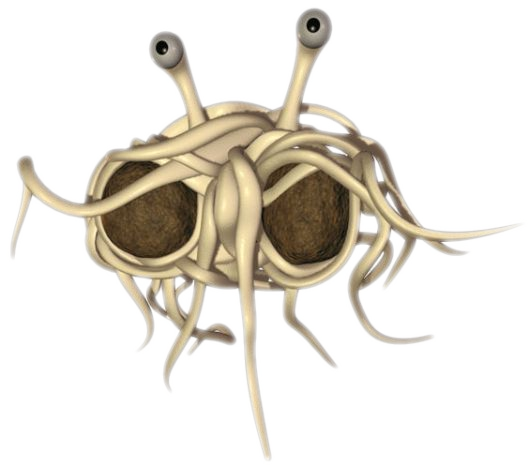CTO at BRONZE
independent consultant
music, graphics, film, robotics, real-time
sinusoid.al
github.com/arximboldi

#include <immer/vector.hpp>
#include <immer/vector.hpp>
const auto a = immer::vector<int>{1, 2, 3};
#include <immer/vector.hpp>
const auto a = immer::vector<int>{1, 2, 3};
const auto b = a.push_back(4);
assert(a.size() == 3 && b.size() == 4);
#include <immer/vector.hpp>
const auto a = immer::vector<int>{1, 2, 3};
const auto b = a.push_back(4);
const auto c = b.set(0, 42);
assert(a.size() == 3 && b.size() == 4);
assert(a[0] == 1 && c[0] == 42);
template <typename T>
class immer::vector {
std::vector<T> data;
vector push_back(this vector self, T value) {
self.data.push_back(value);
return self;
}
vector set(this vector self, size_t idx, T value) {
self.data[idx] = std::move(value);
return self;
}
...
};
structural sharing
Radix Balanced Tree
- branching factor: M = 2B
- B = 5 [M = 32] ⇒ effective O(1)
- cache efficient
iteration time comparable to std::vector
- relaxed RRB ⇒ O(log(n)) concatenation
all new kinds of parallel algorithms
- not amortized ⇒ constant latency
Hash Array Mapped Tries
- efficient tree structure for unordered maps
- characterized also by B = 5 [M = 32]
- no rehashing ⇒ constant latency
- compact
50% smaller than std::unordered_map
VALUE SEMANTICS
AT SCALE
- concurrent programming
- reasoning about change
- time travel
auto doc = document{};
auto mutex = std::mutex{};
std::thread{[&doc, &mutex] {
std::lock_guard<std::mutex> lock{mutex};
save_to_disk(doc, "file.doc");
});
- concurrent programming
- reasoning about change
- time travel
auto doc = document{};
std::thread{[doc] {
save_to_disk(doc, "file.doc");
});
- concurrent programming
- reasoning about change
- time travel
- concurrent programming
- reasoning about change
- time travel
auto doc = document{};
doc.on_foo_changed = [] { ... };
doc.on_bar_changed = [] { ... };
doc.set_bar(100); // calls on_bar_changed()
// doesn't compose
void complex_operation(document& doc) {
doc.set_foo(42); // trigger on_foo_changed
doc.set_bar(69); // trigger on_bar_changed
}
// broken invariants, wasteful updates!
complex_operation(doc);

- concurrent programming
- reasoning about change
- time travel
// value semantics do compose
document complex_operation(document doc) {
doc.foo = 42;
doc.bar = 69;
return doc;
}
auto curr = document{};
auto next = complex_operation(curr);
// curr remains valid, it "persisted"!
// also: comparing vectors is cheap!
if (curr.foo != next.foo) {
// use Lager cursors for extra convenience
}
- concurrent programming
- reasoning about change
- time travel
// HAMT's support diffing in O(|change|))
const auto a = immer::map<int, std::string>{
{0, "foo"},
{1, "bar"}
};
const auto b = a
.set(2, "baz")
.update(1, [](auto x) { return x + x; });
immer::diff(a, b, [](auto x) {
print("added: {}", x);
}, [](auto x) {
print("removed: {}", x);
}, [](auto x, auto y) {
print("changed: {} -> {}", x, y);
});
- concurrent programming
- reasoning about change
- time travel
- concurrent programming
- reasoning about change
- time travel
struct undo_history {
vector<document> steps;
size_t current = 0;
};
persisting
persistence
⚠
for purely educational purposes,
we turn our beautiful radix balanced trees into binary trees
struct document {
vector<string> data;
};
// we'll use Cereal for serialization
// https://github.com/USCiLab/cereal
template <class Archive>
void serialize(Archive& ar, document& ar) {
ar(cereal::make_nvp("data", data));
}
template <typename Archive, typename T>
void load(Archive& ar, vector<T>& m) {
auto size = cereal::size_type{};
ar(cereal::make_size_tag(size));
m = {};
for (auto i = size_type{}; i < size; ++i) {
T x;
ar(x);
m = std::move(m).push_back(std::move(x));
}
}
template <typename Archive, typename T>
void save(Archive& ar, const vector<T>& m) {
auto size = static_cast<size_type>(m.size());
ar(cereal::make_size_tag(size));
immer::for_each(m, ar);
}
const auto v1 = vector<string>{"a", "b", "c", "d"};
const auto v2 = v1.push_back("e").push_back("f");
const auto v3 = v2;
const auto hist = vector<document>{{v1}, {v2}, {v3}};
{
auto ar = cereal::JSONOutputArchive{std::cout};
ar(hist);
}
{
"value0": [{
"data": ["a", "b", "c", "d"]
}, {
"data": ["a", "b", "c", "d", "e", "f"]
}, {
"data": ["a", "b", "c", "d", "e", "f"]
}]
}
immer ::
persist
struct document {
vector<std::string> data;
};
// Louis Dionne's Boost.Hana for reflection
BOOST_HANA_ADAPT_STRUCT(document, data);
// C++20 alternative: boost::prf
// C++26 alternative: std::meta::info
template <typename Archive, typename T>
requires boost::hana::Struct<T>::value
void serialize(Archive& ar, T& v)
{
using namespace boost;
hana::for_each(hana::keys(v), [&](auto&& k) {
ar(cereal::make_nvp(k.c_str(),
hana::at_key(v, k)));
});
}
const auto v1 = vector<string>{"a", "b", "c", "d"};
const auto v2 = v1.push_back("e").push_back("f");
const auto v3 = v2;
const auto hist = vector<document>{{v1}, {v2}, {v3}};
using namespace immer::persist;
cereal_save_with_pools<cereal::JSONOutputArchive>(
std::cout,
hist,
hana_struct_auto_member_name_policy(hist));
{
"value0": [{ "data": 0 },
{ "data": 1 },
{ "data": 1 }],
"pools": {
"data": {
"B": 1, "BL": 1,
"leaves": [
[ 1, [ "c", "d" ] ],
[ 2, [ "a", "b" ] ],
[ 4, [ "e", "f" ] ],
],
"inners": [
[ 0, { "children": [ 2 ], "relaxed": false }],
[ 3, { "children": [ 2, 1 ], "relaxed": false }]
],
"vectors": [
{ "root": 0, "tail": 1 },
{ "root": 3, "tail": 4 }
]
}
}
}
struct my_policy {
template <class T>
auto get_pool_types(const T&) const {
return boost::hana::tuple_t<vector<string>>;
}
auto get_pool_name(const vector<string>&) const {
return "vectorz_of_stringz";
}
template <class Archive>
void save(Archive& ar, const vector<document>& v) const {
ar(cereal::make_nvp("history", v));
}
template <class Archive>
void load(Archive& ar, vector<document>& v) const {
ar(cereal::make_nvp("history", v));
}
};
auto transform_immer(auto in, auto fn)
{
auto out = decltype(in.transient()){};
std::transform(in.begin(), in.end(), std::back_inserter(out), fn);
return out.persistent();
}
auto x1 = transform_immer(v1, [](auto s) { return to_uppercase(s); });
auto x2 = transform_immer(v2, [](auto s) { return to_uppercase(s); });
auto x3 = transform_immer(v3, [](auto s) { return to_uppercase(s); });
namespace v1 {
struct document {
vector<std::string> data;
};
}
namespace v2 {
struct document {
vector<char> data;
};
}
BOOST_HANA_ADAPT_STRUCT(
v1::document, data);
BOOST_HANA_ADAPT_STRUCT(
v2::document, data);
namespace hana = boost::hana;
const auto xform = hana::make_map(
hana::make_pair(
hana::type_c<vector<std::string>>,
[] (std::string v) -> char {
return v.empty() ? '\0' : v[0];
}));
const auto v1 = vector<string>{"a", "b", "c", "d"};
const auto v2 = v1.push_back("e").push_back("f");
const auto v3 = v2;
const auto history = vector<v1::document>{{v1}, {v2}, {v3}};
const auto p0 = get_output_pools(history);
auto p1 = transform_output_pool(p0, xform);
auto view = history | std::views::transform([&](v1::document x) {
auto data = convert_container(p0, p1, x.data);
return v2::document{data};
});
return vector<v2::document>{view.begin(), view.end()};
{
"value0": [{ "data": 0 },
{ "data": 1 },
{ "data": 1 }],
"pools": {
"data": {
"B": 1, "BL": 1,
"leaves": [
[ 1, [ 99, 100 ] ],
[ 2, [ 97, 98 ] ],
[ 4, [ 101, 102 ] ],
],
"inners": [
[ 0, { "children": [ 2 ], "relaxed": false }],
[ 3, { "children": [ 2, 1 ], "relaxed": false }]
],
"vectors": [
{ "root": 0, "tail": 1 },
{ "root": 3, "tail": 4 }
]
}
}
}
More stuff
- Hash Array Mapped Tries work
- use a portable hashing function for serialization (immer::persist::xx_hash)
- converting key types supported, but be careful!
-
Complex data models work
- All containers of same type get consolidated in a single pool
- Recursive data models work!
TO-DO
- Incremental processing
- Binary formats
- Compact representation
- Cereal independence
- Build time, object size

takeaways
structural sharing
enable value semantics
at scale
immer::persist
serialize and transform shared structure
HELP US!
CppCon'17
Postmodern immutable data structures
https://youtu.be/sPhpelUfu8Q
CppCon'19
The most valuable values
https://youtu.be/_oBx_NbLghY
CppCon'21
Squaring the circle
https://youtu.be/e2-FRFEx8CA
Juanpe Bolívar
linkedin.com/in/juanpe-bolivar
Alex Shabalin
linkedin.com/in/a-shabalin
BRONZE
bronze.ai